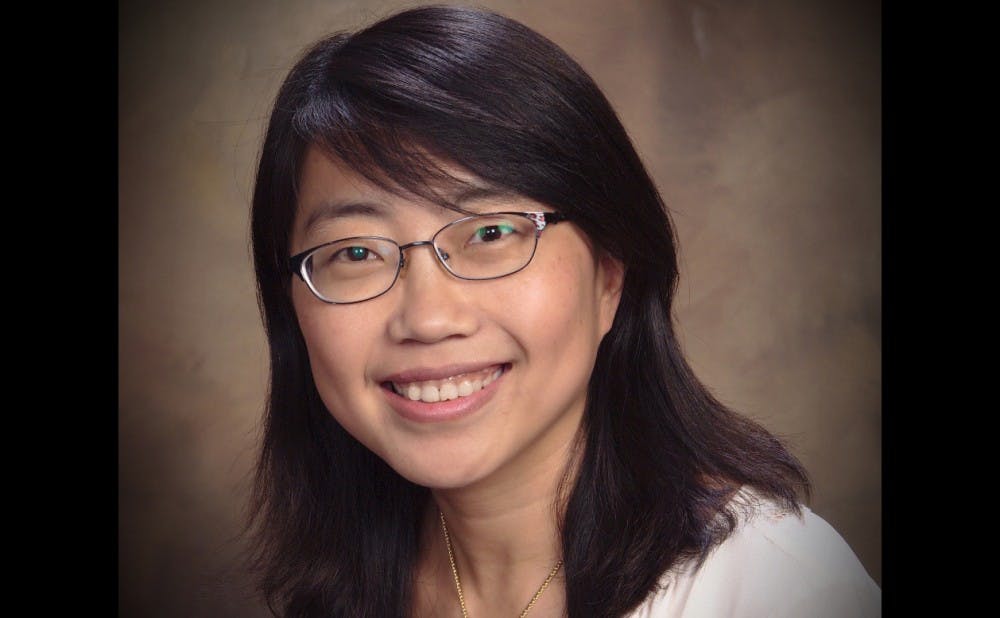This month, Helen Li—who is known for her research in brain-inspired computing systems—will join the department of electrical and computer engineering. After earning a Ph.D. in electrical engineering from Purdue University in 2004, she worked at Qualcomm Inc., Intel Corp and Seagate Technology before returning to academia in 2009. The Chronicle's Grace Mok talked with Li about her research and her thoughts on the future of artificial intelligence.
The Chronicle: Can you explain what your research is about?
Helen Li: We have a few research topics. The reason I joined Duke majorly is trying to exchange research about future computing. Future computing is sometimes called more specifically “brain-inspired” computing. My research is trying to mimic brain biology structures and develop similar hardware architectures. Then we can improve the efficiency, meaning the computation speed and energy efficiency.
TC: What inspired you to do this kind of research?
HL: I started my Ph.D. in microprocessors. Then, I joined companies and joined the networks of new technologies and spoke to defense agencies, like the Department of Defense and the Department of Energy and found that our computers, even though we love them so much and use them so much, are not smart enough. There are a lot of tasks that cannot be operated or realized. From the other end, our human brains are very efficient. They’re light, respond fast and learn by itself. So from other conversations and research exchanges, I decided that intelligent computing will be the future. And this is how I initiated my research work in the beginning.
TC: What do you think of the future of artificial intelligence research in general?
HL: As someone working in this area, I certainly believe that this is the future and this is the trend. In history, there are a lot of ups and downs of artificial intelligence. In recent years, it again achieved tremendous success. However, compared to what humans can do, there is still a huge space for computers to improve. If you’re asking me, computers can’t think by themselves and can’t find problems by themselves. They do not have curiosity. They can’t do anything without specific algorithms. This is something we are curious about and trying to solve, not in the short term, but for certain areas and applications.
TC: Do you think that artificial intelligence will ever become conscious?
HL: I personally believe it and am looking forward to it. I think right now that the situation is way different from what we had in the past. Right now, people have made significant progress in nanotechnologies. We have the new medium and technology to develop completely new computer architectures. People also have a much better understanding of biology, DNA, cells, brains. People already have also developed clear theory, statistics and machine learning. Furthermore, people have extensive databases, and those are essentially the foundation of artificial intelligence as well. All the components are there, but our major challenge is putting them together to enable artificial intelligence. I believe that this is something we will be able to achieve eventually.
TC: In this field of artificial intelligence, how does Duke compare with its peer institutions?
HL: Duke is extremely strong in bio-engineering, machine learning, nanotechnologies, data center, computer engineering and more. Duke is at the learning position and has a lot of potential. In each individual area, Duke is very, very competitive, but since artificial intelligence is not one discipline, it requires multidisciplinary effort.
The Chronicle: Is your industry experience unusual for electrical engineering Ph.Ds?
Helen Li: Compared to my colleagues, I jumped between companies with different backgrounds. For example, Qualcomm is working on communications, Intel is working on microprocessors and Seagate is working on magnetic technologies. So they all have different backgrounds and different strengths. I actually learned a lot from different perspectives. My research has always focused on computing, but all of these industry experiences have helped me understand from different angles and develop relationships with people in different areas.
TC: Is it normal for people who get a Ph.D. in electrical engineering to do industry work as opposed to jumping into academia?
HL: Actually, I think that most of my college friends and classmates with a Ph.D. are working in industry. If you are in a computer engineering related area, the pay in industry is much higher than in academia. Spending a few years in industry and then coming back to academia is kind of an unusual case. The majority of people end up in industry.
TC: Why did you decide to come back to academia?
HL: What I learned and did was more and more toward emerging device technology and neuromorphic computing. I actually have a lot of curiosity in trying to continue the research. Developing neuromorphic computing systems by leveraging novel nanotechnologies far exceeded industry interests. Companies work to make things happen and commercialize and make money very soon. But I was looking toward things in a further sense. Coming back to academia helped me develop my own research direction and achieve my dreams in the area.
TC: How has your industry experience impacted you?
HL: From a technical perspective, the industry experience has helped me know people from different areas and develop relations. Secondly, in my own career interests, I am still trying to talk to my colleagues in companies to understand what they need and what the trends are. Our research is not very far from physical solutions or solutions close to commercialization. This is our present focus. Third, the majority of our graduate students find internships before they complete the Ph.D. so they can learn what happens in companies and learn about their interests. These are very important for their future careers as well. My industry experience helps us maintain a large research group and educate our students.
Get The Chronicle straight to your inbox
Signup for our weekly newsletter. Cancel at any time.

